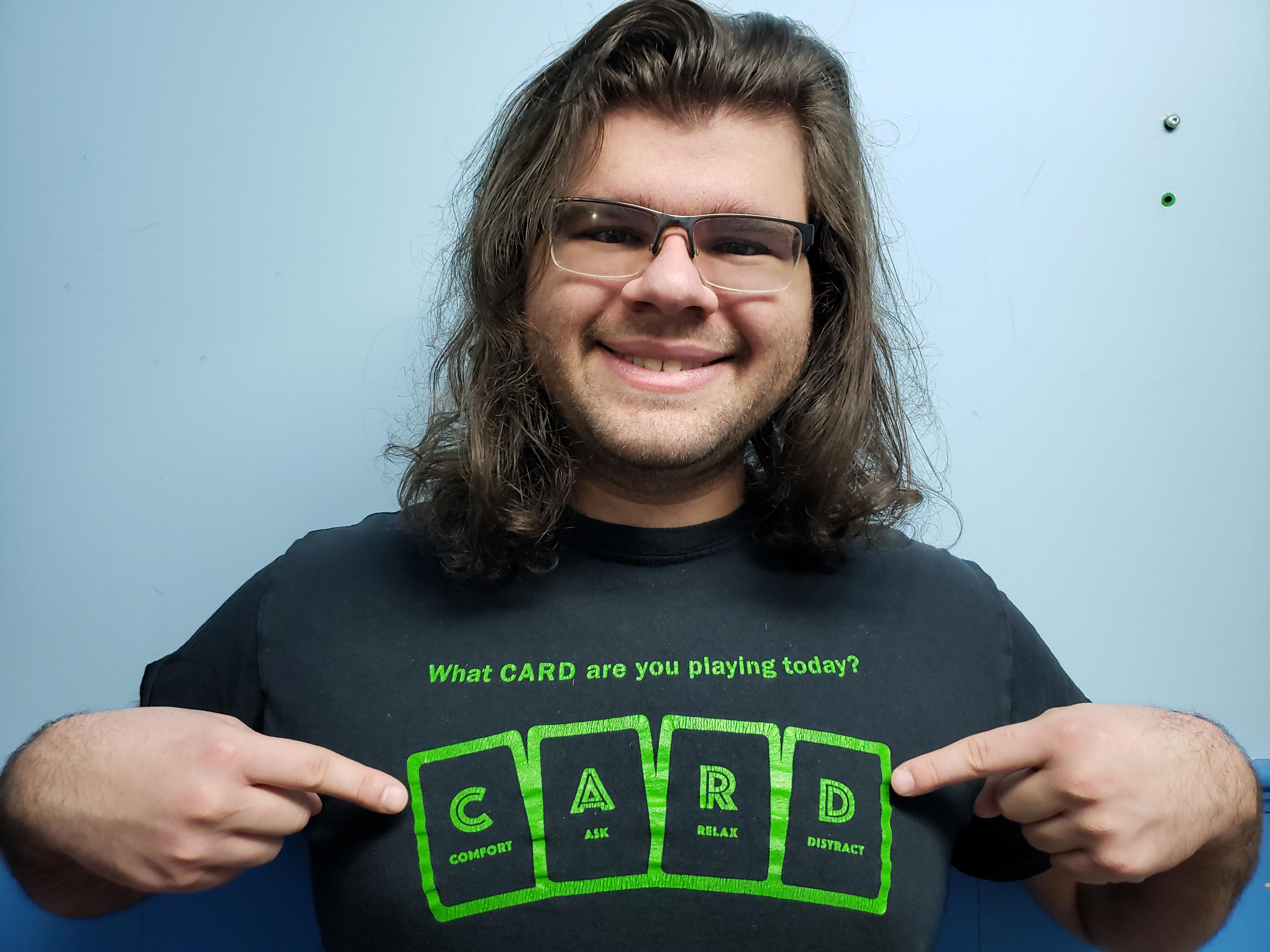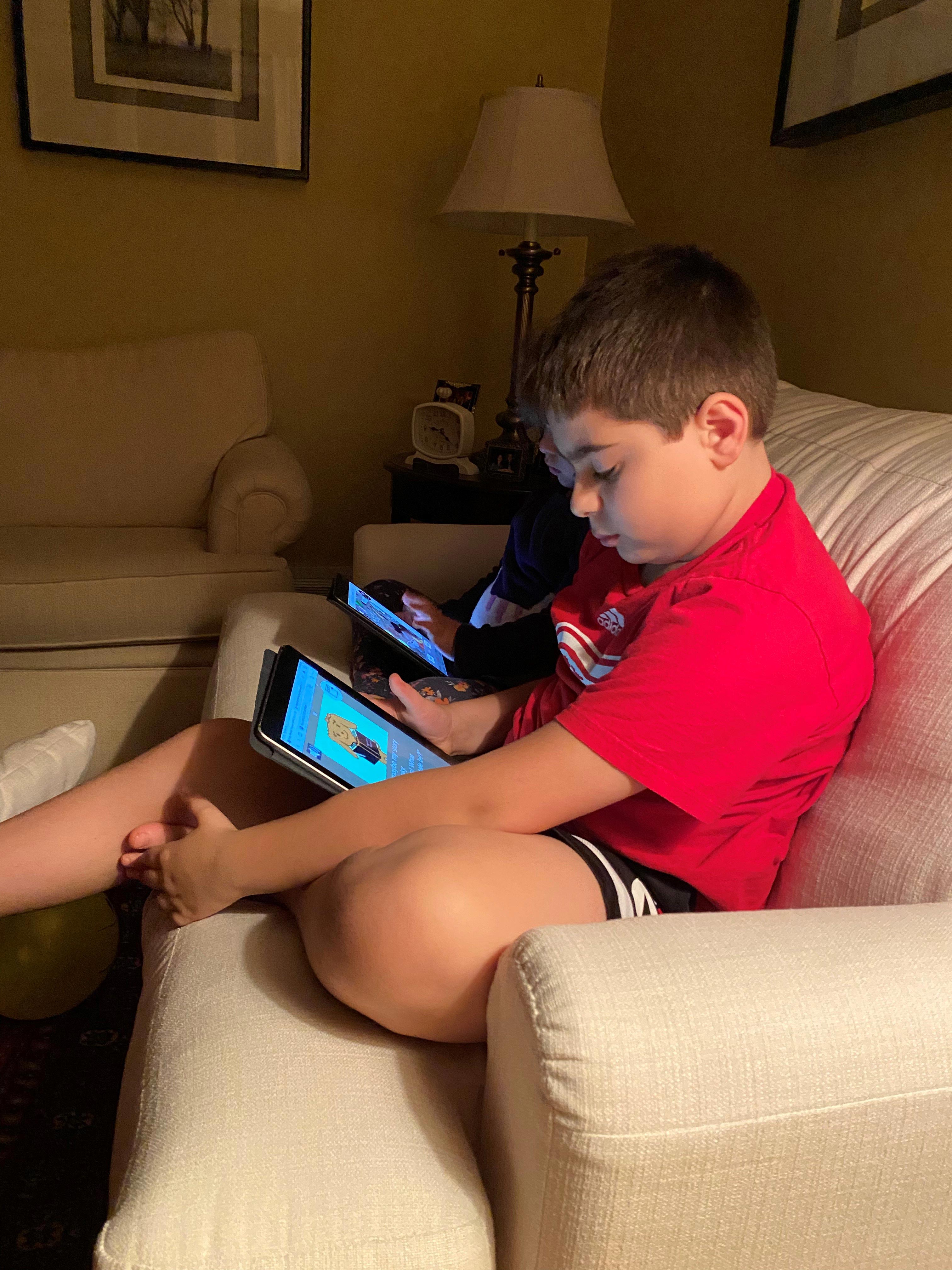
Waterloo co-op student builds web game to improve children's vaccine experience
Online game, CARD™, addresses fear of needles in children

Online game, CARD™, addresses fear of needles in children
By Krista Henry Co-operative and Experiential EducationWhen University of Waterloo co-op student Anthony Ilersich faced the challenge of easing vaccine-related anxiety in children, he used his love for gaming to make a difference.
The fourth-year Computing and Financial Management student in the Faculty of Mathematics, is a driving force behind the interactive web game CARD™. Developed by Immunize Canada and the University of Toronto, CARD™ (Comfort, Ask, Relax, Distract) is an evidence-based framework that teaches children how to prepare for vaccination.

“The game has two big goals. One is to teach children (aged 6 to 12), through playing the game, how to help cope with getting a needle,” says Ilersich. “The other is to be a distraction or calming tool for when they're feeling anxious.”
Most vaccinations are delivered through a needle, which can cause pain-related symptoms such as fear and fainting. By playing CARD™, which is accessible on most mobile devices, children can prepare for vaccination and experience less stress-related reactions.
“The game is a virtual deck of cards with different tips. As you progress through, there is cute little characters to help you along,” adds Ilersich. “We also wove in mini games to be fun, distracting and calming. This keeps children motivated to continue with all the educational elements.”
“Anthony has been very invested from the beginning,” says Dr. Anna Taddio, professor at the Leslie Dan Faculty of Pharmacy, University of Toronto and senior associate scientist at the Hospital for Sick Children. “He was brought on in 2016 as a student representative to help inform the project. When I told him we needed some way to put this together for people to gravitate to it, he came up with acronym, CARD™. He understands this program more than anyone else.”
senior associate scientist at the Hospital for Sick Children. “He was brought on in 2016 as a student representative to help inform the project. When I told him we needed some way to put this together for people to gravitate to it, he came up with acronym, CARD™. He understands this program more than anyone else.”
Ilersich started with Immunize Canada in September 2020 as program development manager. Following his four-month co-op term he worked part-time on the project until its launch in December 2021.
As program development manager, he directed the work of three developers and an artist who worked on the game’s design. Managing others was a learning curve for Ilersich, who spent his nights working on the technical aspects of the game.
“It is an intense project and I’m excited that it’s out in the world and ready to help people,” he adds.
 For Immunize Canada this is the first evidence-based tool that uses a theoretical framework in education and gaming. “What is great about this game is that it’s not just about vaccination, it’s about needles,” says Lucie Marisa Bucci, senior manager at Immunize Canada.
For Immunize Canada this is the first evidence-based tool that uses a theoretical framework in education and gaming. “What is great about this game is that it’s not just about vaccination, it’s about needles,” says Lucie Marisa Bucci, senior manager at Immunize Canada.
“Children can use this when getting a blood test or any painful event or situation. Those letter categories (Comfort, Ask, Relax, Distract) are for relieving anxiety and fear which has broader uses. This is important in our approach to immunize for the prevention of diseases. This game has proof it helps, says Bucci.
According to Bucci, Ilersich brought his technical agility and passion for gaming into this project. “What drew us to Anthony is his critical thinking skills, which are off the charts. He was able to capture the essence of what the tool is for and converted it into something engaging. That is not easy to do.” Ilersich was a standout for Bucci because he is purpose driven. He makes informed decisions at a very high level while navigating through theoretical frameworks.
In Winter 2022, Ilersich returns to gaming in his next co-op term as a game programmer at Vancouver-based, Eden Industries.

Read more
Here are the people and events behind some of this year’s most compelling Waterloo stories

Read more
Meet the 13 exceptional students representing Waterloo’s newest grads

Read more
Students show off their problem-solving prowess by pitching unique startup ideas to secure grant funding
The University of Waterloo acknowledges that much of our work takes place on the traditional territory of the Neutral, Anishinaabeg, and Haudenosaunee peoples. Our main campus is situated on the Haldimand Tract, the land granted to the Six Nations that includes six miles on each side of the Grand River. Our active work toward reconciliation takes place across our campuses through research, learning, teaching, and community building, and is co-ordinated within the Office of Indigenous Relations.